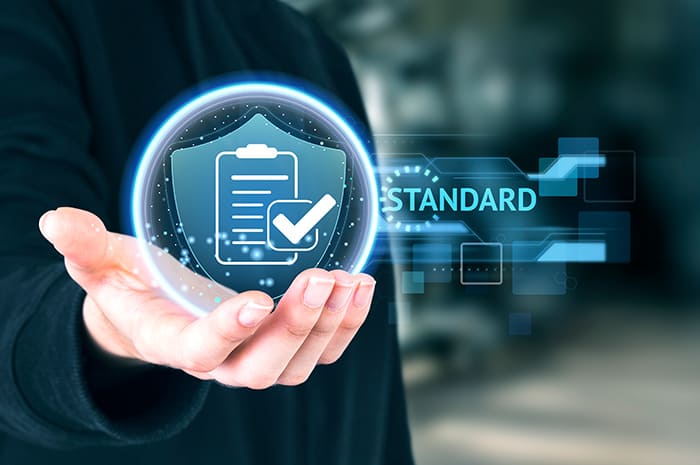As we step into today’s highly networked business world, database that carries
information tops the most valuable asset any organisation possesses, which makes it one
of the most vulnerable assets as well. Data breaches, cyberattacks, and privacy
violations aren’t some random events you hear about in the news; they are common threats
that can damage a company’s reputation, lead to heavy fines, and cause customers to lose
trust.
In the Indian market, these risks play a major role and shapes your image to the outside
worlds. The moment you allow yourself to become a pawn in a threat actor’s game, you
forfeit the trust your clients have placed in you. It is a core business imperative in
today’s world to protect sensitive corporate data and personal information that complies
with the law. This is because as time evolved, different countries started working
together and started sharing information internationally.
Just last year (2023), a Bangalore based IT Firm faced a major phishing attack. This led
to their client’s proprietary code to be leaked. Because of which they had a ₹50 lakh
penalty and lost US customer. This data breach dealt a double blow: financial losses and
damaged trust. Which gives you an idea on how these risks are real and recurring for
Indian IT firms.
For this to stay intact within organisations, the ISO 27001 certification establishes a
solid and structures method of information protection through Information Security
Management System (ISMS). Using ISO 27001 as a foundation, ISO 27701 adds a
privacy-oriented aspect by defining a Privacy Information Management System (PIMS).
These two certifications work hand in hand to provide an integrated system for the
management of general Information security and personal information protection.
How to get iso 27001 certification?
Getting ISO 27001 certified is a step-by-step process that ensures your
organisation meets international information security standards:
1
Gap Analysis: Identify gaps by comparing current
processes with ISO 27001 requirements.
2
Scope Definition: Define which parts of the business
the ISMS will cover.
3
ISMS Implementation: Document policies, assign roles,
and apply security controls.
4
Risk Assessment & Treatment: Evaluate risks and
implement measures to mitigate them.
5
Training & Awareness: Educate employees to follow
security practices effectively.
6
Internal Audit: Test the ISMS internally and fix issues
before the official audit.
7
Management Review: Leadership reviews ISMS performance
and drives improvements.
8
Certification Audit: Accredited auditors review
documentation and implementation in two stages.
9
Maintenance: Continuously monitor, audit, and update to
remain compliant.
What is iso 27701? - Benefits
If ISO 27001 is the main ledger to secure your information, ISO 27701 is
like another ledger on the same shelf.
It’s an extension of ISO 27001 that helps organizations stay in the
market
with respect to Privacy Information Management System (PIMS).
Why? Because in today’s world, keeping data safe is not the only
objective; you also must handle it responsibly.
Now, you must wonder what makes these certifications that useful. Here in
Firstwave we provide these certificates keeping into account all the benefits that can
be taken into action to help a firm grow in the market.
The Privacy Connection: ISO 27701 aligns with the global privacy laws
- • GDPR (Europe’s
General Data Protection Regulation)
- • India’s Digital
Personal Data Protection (DPDP) Act
It gives you a structured way to manage personal data which shows trust
within an organisation.
For Indian IT firms, ISO 27701 certification shows clients and regulators
that privacy risks are addressed actively, which is important mainly for organisations
handling customer data in bulk or working with international partners.
Key benefits include
- •
Integrates privacy protection into existing ISMS framework
- •
Demonstrates compliance with privacy regulations (GDPR, DPDP)
- •
Reduces risks of data privacy breaches and penalties
- •
Enhances trust with clients, partners, and stakeholders
- •
Streamlines privacy governance and operational controls
- •
Supports global market access where privacy compliance is mandatory
ISO 27001 and ISO 27701: Key Difference
ISO 27001 and ISO 27701 – are they separate standards or part of the same framework?
So to make it short, imagine ISO 27001 as the master framework.
It’s all about building an Information Security Management System (ISMS), a structured
way to protect all the required information including financial data, trade secrets,
customer contracts, cloud backups.
Its focus is broad: confidentiality, integrity, and availability of information, no
matter what form it is in.
Now, let us talk about ISO 27701, which isn’t a standalone standard, but an extension of
ISO 27001.
It zooms in on one critical piece of the puzzle: personal data (PII). This is data that
identifies people — like names, phone numbers, medical records, or payment info.
ISO 27701 adds specific privacy controls so that your ISMS isn’t just secure… it’s also
compliant with privacy laws, including GDPR in Europe, India’s DPDP Act, and other
global regulations.
Why ISO 27001 is Crucial for Indian IT Companies
If you’re an Indian IT company, you already know the global stage is crowded, and
clients are cautious.
They’re not just asking, “Can you deliver?” but also, “Can you protect our data while
you do it?”
That’s where ISO 27001 certification steps in. It’s not just a nice-to-have; in many
cases, it’s your ticket to the game of staying in the market.
If your organisation is into international market, many international contracts
(especially in Europe and the US) won’t even let you in their door without ISO 27001.
Think of it as your security passport, without it those big-ticket projects may simply
not think of you as a client worth investing in.
And about keeping Indian and Global regulations in check. From India’s Digital Personal
Data Protection (DPDP) Act to global frameworks like GDPR, compliance is non-negotiable
in this certification.
ISO 27001 helps Indian IT firms show they’re not just compliant but structured and
proactive about data protection.
Certification isn’t just paperwork but it includes training, awareness programs, and
internal audits that get everyone from interns to leadership to walk on the same ground
of thoughts about security where it turns data security from an IT problem into a
company-wide habit.
In this competitive world, ISO 27001 acts as a seal of trust and signals to the world
that,
“We don’t just deliver code and services. We safeguard your data like it’s our own.”
Why ISO 27701 is Becoming a Priority in India
Have you noticed how every app, website, and service you use now pops up with privacy
notices and consent checkboxes? That’s not just a trend it’s the new reality in India.
With the Digital Personal Data Protection (DPDP) Act now in force, businesses are
legally accountable for how they collect, process, and store personal data. Without any
excuses/shortcuts.
So where does ISO 27701 come into the picture?
Think of it as your organization’s privacy GPS. It provides a structured roadmap for
building a Privacy Information Management System (PIMS) that not only keeps regulators
happy but also wins client trust.
Let’s break down why ISO 27701 is quickly climbing the priority list for Indian
businesses:
- •
It reassures international clients, especially in Europe and the US, that privacy
compliance is in place.
- •
It helps comply with India’s DPDP Act and reduces the risk of regulatory penalties.
- •
It builds customer trust by showing transparency and responsibility in data
handling.
- •
It gives IT service providers and BPOs a competitive edge by demonstrating strong
privacy practices.
- •
It aligns privacy practices with global laws like GDPR, making international
operations smoother.
At Firstwave Certification, we guide businesses through the entire ISO journey, from the
initial gap analysis all the way to successful accreditation. Our goal is
simple:
“To make sure your organization is not just compliant, but also competitive in today’s
global marketplace.”


